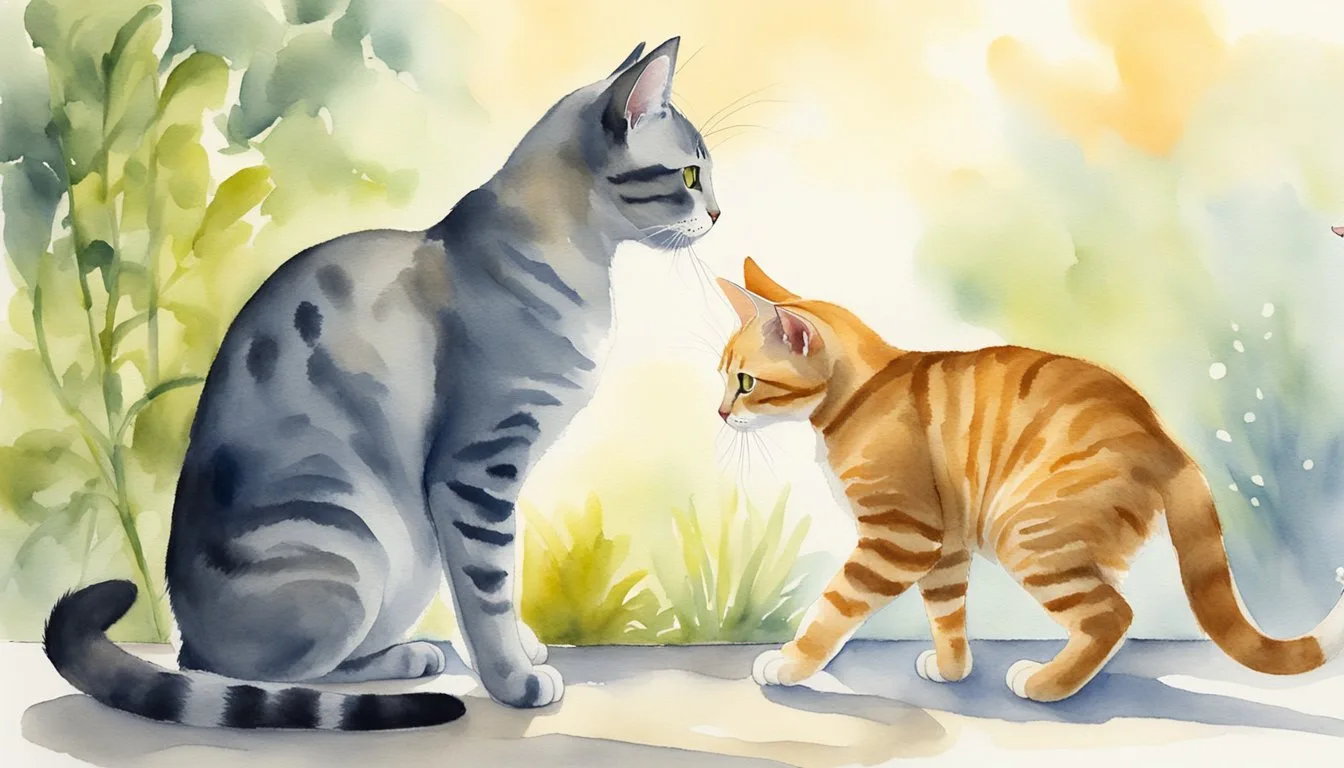Understanding Cat Pregnancy
When considering cat reproduction, it’s essential to recognize that cats can become pregnant from a young age, and their gestation is relatively short. Insights into their reproductive cycles can help identify pregnancy signs and understand the stages leading to labor.
Reproductive Basics
Female cats reach sexual maturity and can become pregnant as early as 4-6 months old. They experience an estrus cycle, which is indications of being in heat and able to mate. Cats are induced ovulators, which means ovulation occurs during mating through hormonal changes. Male cats also reach puberty around the same age and can begin breeding.
Signs of Pregnancy
After a female cat mates and becomes pregnant, specific signs of pregnancy become evident. A few weeks into pregnancy, her nipples may enlarge and become pinker, hinting at her condition. Pregnant cats may also show nesting behavior as they prepare for the arrival of their kittens.
Stages of Cat Pregnancy
A cat’s pregnancy, or gestation period, typically lasts between 63 to 65 days, although it can range from 61 to 72 days. The stages of pregnancy can be observed through changes in behavior and physical appearance. During the early weeks, it’s difficult to notice visible signs, but towards the end, the abdomen enlarges as the kittens grow and the mother prepares for labor.
Health and Prevention

Ensuring the health and longevity of cats involves understanding their reproductive system and preventing unwanted pregnancies. The following aspects are critical to maintaining their well-being during their fertile months.
Nutrition and Care During Pregnancy
A pregnant cat, or queen, requires a diet rich in nutrients to support kitten development. She may become more affectionate and her appetite can increase significantly. It’s important to gradually transition her to kitten food, which is dense in calories and nutrition, ideal for both nursing mothers and growing kittens.
Spaying and Neutering Benefits
Spaying and neutering are surgical procedures that can prevent unwanted litters, reduce the risk of mammary tumors and uterine infections, and decrease undesirable mating behaviors in cats. For male cats, neutering can reduce marking with urine and aggression. Veterinarians typically suggest these surgeries before cats reach sexual maturity to maximize benefits.
Pregnancy Complications
Pregnancy in cats can sometimes lead to complications such as dystocia or difficulty in giving birth. Monitoring your cat for signs of distress during pregnancy is crucial. Veterinary care, including ultrasounds and x-rays, can be instrumental in diagnosing and managing complications effectively. Nursing can bring additional stress and potential for infections which require attentive care and possible intervention by a veterinarian.

